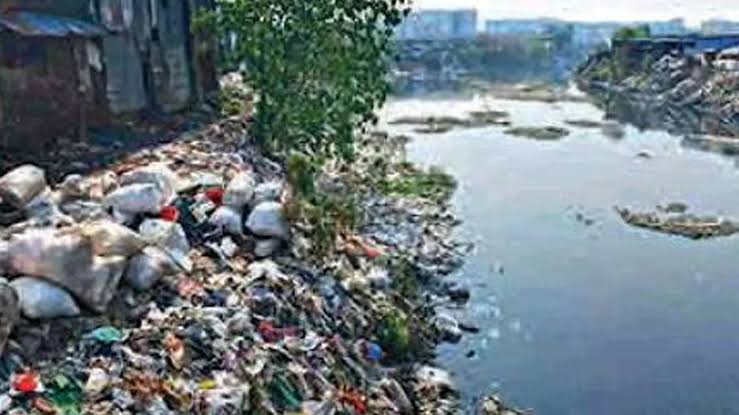Water Pollution
Water Pollution: Understanding Water Pollution and Seeking Solution
Water Pollution:
It is the lifeblood of our planet, essential for all living organisms. However, the alarming rise in water pollution is threatening this precious resource. Water pollution occurs when contaminants are introduced into water bodies, making them unsafe for humans, wildlife, and ecosystems. thus, this extensive article, we will delve into the causes, consequences, and potential solutions for water pollution, a pressing environmental issue of our time.
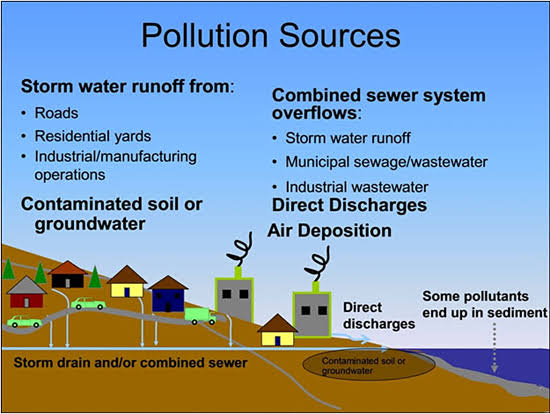
I. Defining Water Pollution:
Water pollution is the contamination of water bodies such as rivers, lakes, oceans, groundwater, and even drinking water sources, with harmful substances known as pollutants. Thus, these pollutants can be classified into various categories, including:
1. Chemical Pollutants:
These include toxins, heavy metals (e.g., lead, mercury), pesticides, industrial chemicals, and pharmaceuticals that can leach into water sources.
2. Biological Pollutants:
Consequently, biological contaminants consist of harmful microorganisms like bacteria, viruses, and protozoa, often leading to waterborne diseases.
3. Nutrient Pollution:
Consequently, excess nutrients primarily nitrogen and phosphorus from agricultural runoff and wastewater discharge, can cause harmful algal blooms and oxygen depletion in aquatic ecosystems.
4. Sediment Pollution:
Consequently, sediment runoff from construction sites and erosion can cloud waters, suffocate aquatic life, and disrupt ecosystems.
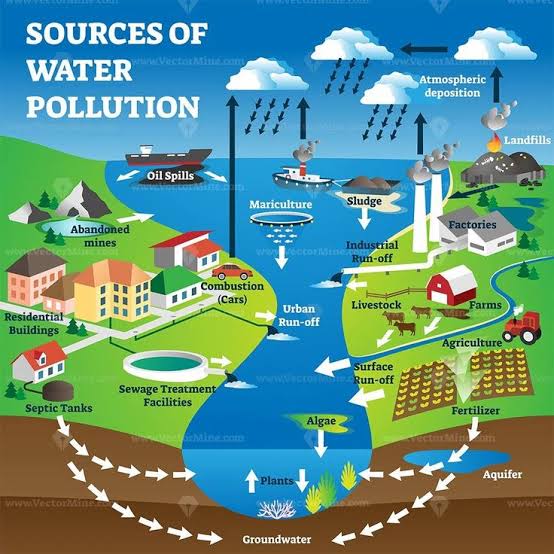
II. Sources of Water Pollution:
Understanding the sources of water pollution is vital for developing effective mitigation strategies. There are some basic sources of water pollution such as:
1. Industrial Activities causes water Pollution:
Consequently, industrial facilities can release a range of pollutants into water bodies, including toxic chemicals, heavy metals, and industrial wastewater.
2. Agriculture causes water Pollution:
Consequently, agricultural runoff carries pesticides, fertilizers, and manure into rivers and streams, contributing to nutrient pollution and harming aquatic life.
3. Urbanization causes water Pollution:
Consequently, urban areas generate pollution through stormwater runoff, sewage discharge, and the disposal of hazardous waste into waterways.
4. Mining causes water Pollution:
Consequently, mining operations can introduce heavy metals and acidic runoff into nearby water bodies, contaminating aquatic ecosystems.
5. Wastewater Treatment Plants:
Consequently, inadequate or outdated wastewater treatment facilities can release partially treated sewage into rivers and oceans, carrying pathogens and pollutants.
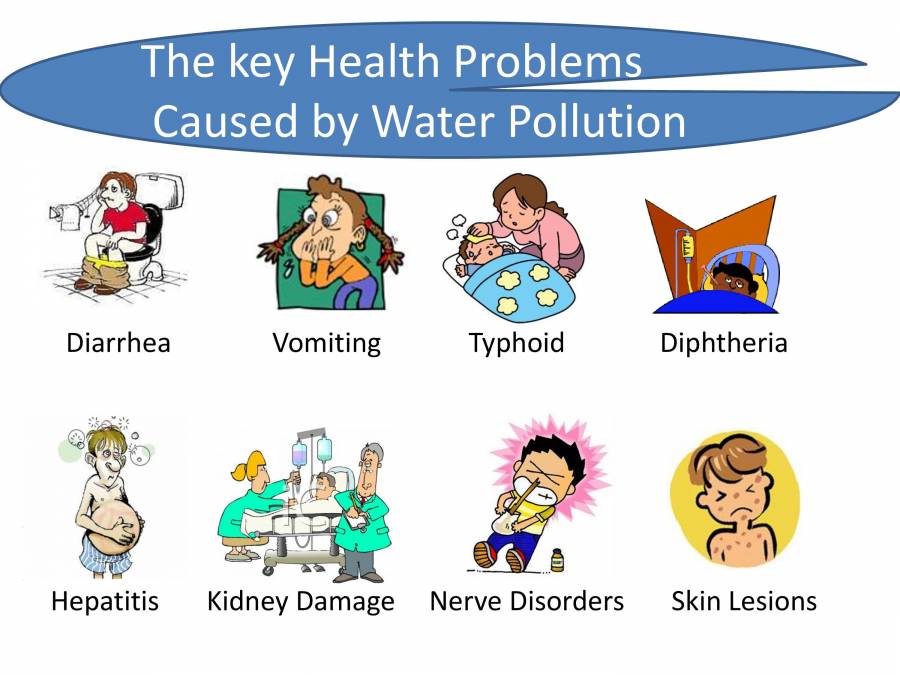
III. Consequences of Water Pollution:
Consequently, water pollution has dire consequences for the environment, human health, and economies.
1. Environmental Impact:
- Aquatic Ecosystems: Pollutants can disrupt aquatic ecosystems, leading to fish kills, loss of biodiversity, and the creation of dead zones with low oxygen levels.
- Habitat Destruction: Sediment pollution can smother riverbeds and disrupt habitats, leading to habitat loss for aquatic species.
- Coral Reefs: Rising ocean temperatures and chemical pollutants are causing coral bleaching and the degradation of coral reefs.
2. Human Health Effects:
- Waterborne Diseases: Contaminated water can spread waterborne diseases such as cholera, dysentery, and giardiasis, affecting millions worldwide.
- Toxic Exposure: Long-term exposure to chemicals like lead and mercury in drinking water can lead to serious health issues, including developmental problems in children and neurological damage in adults.
- Cancer Risk: Certain water pollutants, like arsenic and chlorinated compounds, are linked to an increased risk of cancer when ingested over time.
3. Economic Costs:
- Healthcare Expenses: Treating waterborne diseases and addressing health issues related to water pollution impose significant healthcare costs on communities and governments.
- Fisheries and Tourism: Water pollution harms fisheries and tourism, which are crucial economic sectors in many regions.
- Infrastructure Repair: Pollution-induced damage to water infrastructure requires costly repairs and upgrades.
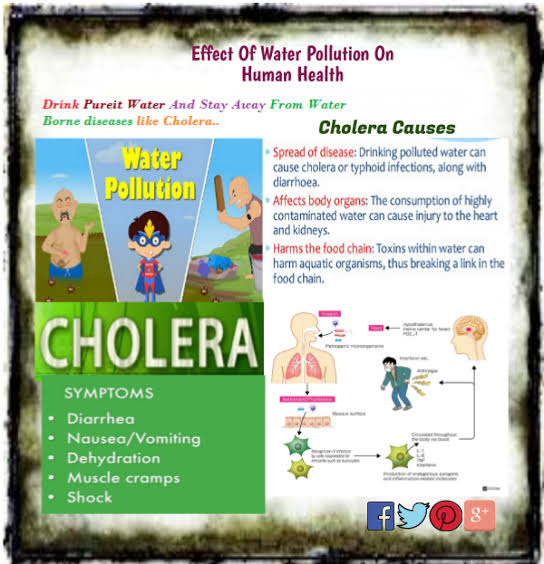
IV. Combating Water Pollution:
Addressing water pollution necessitates comprehensive strategies at local, national, and global levels. therefore, there are some key solutions:
1. Regulation and Enforcement:
Consequently, governments must enact and enforce water quality standards, pollution control measures, and penalties for violations. As a result, regular monitoring and reporting are essential.
2. Improved Wastewater Treatment:
Consequently, upgrading wastewater treatment plants to ensure they meet stringent standards is crucial. Investing in advanced treatment technologies can reduce the discharge of contaminants.
3. Sustainable Agriculture Practices:
Promoting sustainable farming practices, such as reduced pesticide and fertilizer use, buffer zones near water bodies, and responsible manure management, can mitigate agricultural runoff.
4. Stormwater Management:
Consequently, implementing effective stormwater management systems in urban areas can prevent runoff from carrying pollutants into water bodies.
5. Pollution Prevention:
Consequently, encouraging pollution prevention at the source through cleaner production processes and responsible disposal of hazardous waste is essential.
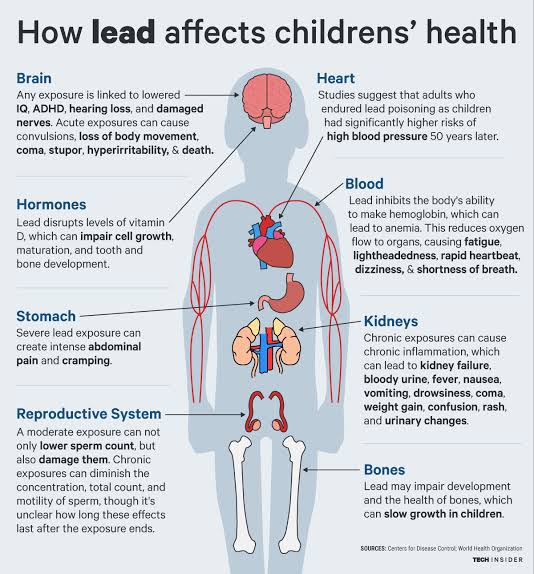
6. Public Awareness:
Consequently, educating the public about water pollution’s risks and ways to reduce personal contributions to pollution can foster a sense of responsibility.
7. Restoration and Conservation:
Consequently, efforts to restore damaged ecosystems and protect natural habitats are crucial for maintaining water quality and biodiversity.
Conclusion:
Consequently, water pollution poses a grave threat to our environment, health, and economies. Thus, it is a global issue that requires immediate attention and action. As a result, by implementing robust regulations, investing in improved infrastructure, promoting sustainable practices, and raising public awareness, we can work towards safeguarding our water resources. Only through collective efforts can we ensure clean and safe water for present and future generations. The battle against water pollution is ongoing, but it is a battle we must win for the sake of our planet and all its inhabitants.
